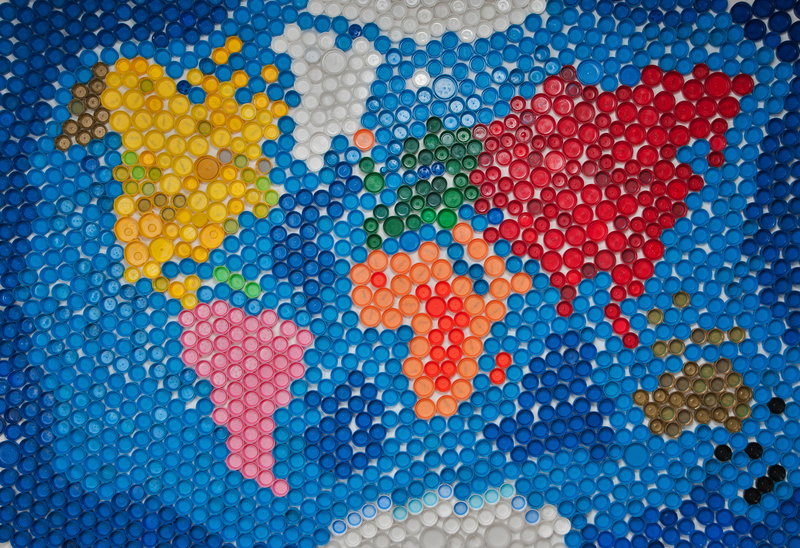Join the Movement: Reduce Your Plastic Waste Today
Plastic waste has become one of the most pressing environmental challenges of our time. Every year, millions of tons of plastic end up in our oceans, landfills, and even the air we breathe. By choosing to reduce your plastic waste today, you can make a significant positive impact on our planet. This comprehensive guide will help you understand the benefits of cutting plastic use and offer practical steps to minimize your plastic footprint. Join the movement--start living with less plastic and inspire those around you to do the same!
Why Is Reducing Plastic Waste Important?
Plastic pollution affects wildlife, the environment, and human health. Reducing plastic waste is crucial for ensuring a cleaner planet for future generations. Here are several key reasons to join the global effort:
- Protects marine life - Vast amounts of plastic end up in oceans, harming fish, turtles, and seabirds.
- Prevents soil and water contamination - Plastic can leach harmful chemicals into the ground and water sources.
- Reduces greenhouse gas emissions - Producing plastics consumes fossil fuels and emits carbon dioxide.
- Improves human health - Microplastics enter our food chain and bodies, posing potential risks.
- Conserves natural resources - Less plastic means less need for raw materials and energy.
The Global Plastic Crisis: Shocking Statistics
To understand the need to reduce plastic waste, it's essential to grasp the scale of the crisis:
- Over 380 million tons of plastic are produced annually worldwide.
- Only about 9% is recycled; the rest ends up in landfills, incinerators, or nature.
- At least 8 million tons of plastic enter the world's oceans every year.
- By 2050, plastics in the ocean could outweigh fish by mass if current trends continue.
- Microplastics have been detected in drinking water, food, and even human blood.
Reducing single-use plastics is a crucial step to address this crisis.

Understanding Different Types of Plastic Waste
Not all plastics are created equal. To effectively reduce your plastic waste, it helps to know the most common types and which are most problematic.
Single-Use Plastics
- Plastic straws, cutlery, plates, and cups
- Plastic bags - used in supermarkets and retail
- Bottled water and drink bottles
- Food wrappers and packaging
These items are typically used for minutes but persist in the environment for hundreds of years.
Microplastics
Microplastics are tiny plastic particles, less than 5mm in size, that result from the breakdown of larger items or as microbeads in personal care products.
Durable Plastics
While intended for long-term use, items like electronics, furniture, and automotive parts often end up as waste eventually and need responsible disposal or recycling.
How to Reduce Plastic Waste: Practical Steps for Everyday Life
*Making meaningful changes to reduce your plastic waste is easier than you might think.* Here are effective, actionable ideas:
1. Refuse Single-Use Plastics
- Say no to plastic straws, cutlery, and stirrers.
- Carry reusable bags when shopping.
- Opt for products with minimal or no plastic packaging.
2. Replace Disposable with Reusable Products
- Use a reusable water bottle instead of buying bottled drinks.
- Switch to reusable coffee cups or thermos flasks.
- Invest in bamboo or metal straws and utensils.
- Try beeswax wraps or silicone lids instead of cling film.
3. Shop Smarter: Buy in Bulk or From Eco-Friendly Brands
- Choose products with recyclable or compostable packaging.
- Support brands that prioritize plastic-free or recycled packaging.
- Buy in bulk to reduce overall packaging waste.
- Consider visiting local refilleries and zero-waste stores.
4. Recycle and Reuse
- Follow local guidelines for recycling plastics properly.
- Repurpose containers for storage, organizing, or DIY projects.
- Participate in community recycling drives or clean-ups.
5. Educate and Advocate
- Inform friends and family about the importance of reducing plastic waste.
- Promote plastic-free living on social media or in local groups.
- Encourage local businesses, schools, and offices to adopt sustainable practices.
Top Tips to Reduce Your Plastic Waste at Home
Transform your daily routine! Here are home-specific actions to help you cut down on plastic waste:
- Switch to bar soap instead of liquid soap in plastic bottles.
- Use laundry strips or powder in cardboard boxes instead of liquid detergents.
- Opt for cloth napkins and towels instead of paper towels wrapped in plastic.
- Choose milk in glass bottles (delivered or from local farms).
- Compost food waste to reduce the need for garbage bags.
- Cook from scratch to avoid packaged ready meals and snacks.
- Store leftovers in glass jars or reusable silicone bags.
Reduce Plastic Waste in Your Workplace
Workplaces are often sources of unnecessary plastic consumption. Here's how to make a difference:
- Encourage colleagues to bring their own reusable cups and utensils.
- Switch to recyclable or bulk supplies for office kitchens.
- Print responsibly by reducing use of plastic-coated papers or files.
- Request caterers to avoid single-use plastic packaging during meetings and events.
- Participate in plastic-reduction challenges as a team to create a culture of sustainability.
Plastic-Free Living: Myths and Misconceptions
Many people believe it's hard or costly to reduce plastic use, but that isn't the case. Let's debunk some common myths:
- Myth 1: Plastic-free living is expensive - truth: Many swaps save money in the long run (reusables, buying in bulk, etc.).
- Myth 2: Alternatives aren't effective - truth: Many products now rival or exceed plastics in durability and convenience.
- Myth 3: One person's efforts don't matter - truth: Every reduced item keeps waste out of landfills and oceans--small changes add up!
The Benefits of Living with Less Plastic
- Healthier lifestyle - Reducing plastic contact, especially with food, limits exposure to harmful chemicals.
- Save money - Buying in bulk, reusing items, and cooking at home often leads to lower bills.
- Community impact - Your actions inspire others to adopt plastic waste reduction strategies, multiplying the effect.
- Environmental protection - Less plastic means cleaner beaches, parks, and urban spaces.
Real-Life Success Stories: People Who Reduced Their Plastic Footprint
- Zero-Waste Families - Households that went from weekly trash bags of single-use plastics to just one small jar a year with consistent swaps.
- Plastic-Free Cafes - Businesses that eliminated plastic straws, take-out containers, and bags, switching to compostables or reusables, and saw customer loyalty grow.
- Eco-Friendly Schools - Students who led campaigns to ban single-use plastic water bottles and received support from administration and parents.
How to Join the Movement: Where to Start
Whether you're new to eco-friendly habits or looking to take your efforts to the next level, joining the movement to reduce plastic waste starts with a few simple steps:
- Do a plastic audit - List the plastic items you use in one week and spot easy swaps.
- Make one change at a time - Don't get overwhelmed--swap your water bottle first, then bags, then food wrap, and so on.
- Seek support - Join online communities or local groups for ideas, encouragement, and resources.
- Celebrate your progress - Every single shift, no matter how small, helps!
The Role of Policy and Innovation in Reducing Plastic Waste
Beyond individual actions, governments and businesses play an essential role in reducing plastic waste. Here's what's happening globally:
- Bans on single-use plastics in countries and cities worldwide
- Extended Producer Responsibility (EPR) laws, making manufacturers responsible for plastic waste
- Innovations in bioplastics, edible packaging, and take-back programs
- Major brands pledging to become plastic-neutral or to use 100% recyclable packaging
Your personal choice to reduce plastic use strengthens the case for these policies and innovations!

Resources for Going Plastic-Free
Conclusion: Start Reducing Your Plastic Waste Today!
Every piece of plastic avoided is a step toward a cleaner, healthier future. With practical swaps, informed choices, and a commitment to change, you can help reduce plastic waste and inspire those around you.
Join the movement now--make your voice heard, take action, and encourage your community to do the same. The time to start reducing your plastic waste isn't tomorrow. It's today!
Together, we can create a world where living with less plastic is the norm--not the exception.